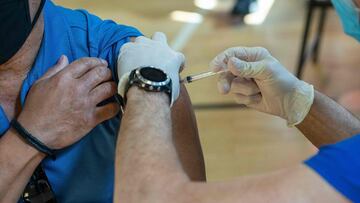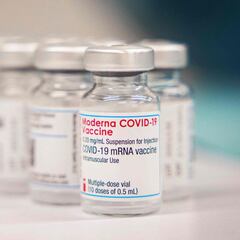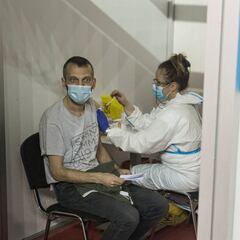Herpes infection and covid vaccine: is there any link between them?
The Pfizer-BioNTech vaccination was the first to be approved by the FDA but a new study has made a link to cases of herpes zoster, more commonly known as shingles.


Medical journal Rheumatology has released a paper reporting that six female patients developed a herpes zoster infection within two weeks of receiving a dose of the Pfizer-BioNTech covid-19 vaccine. The report is part of a limited study into the vaccine's side effects among patients.
However researchers were eager to point out that the link to the coronavirus vaccine is unproven and it is fairly typical for recipients of any vaccination to experience similar side effects after getting a shot. Here’s what we know so far.
What is herpes zoster?
The herpes zoster infection is a completely separate affliction to both genital herpes and oral herpes, which are both caused by different herpes viruses. Herpes zoster is more commonly known as shingles, which is triggered by the same virus that causes chickenpox, according to the National Institute of Neurological Disorders and Stroke (NINDS).
- Coronavirus US: is a third dose of the Pfizer vaccine necessary?
- How to get Covid-19 vaccine appointments in Florida?
- Has the Johnson & Johnson vaccine been recalled?
- What medications or pain relievers are safe to take after the covid-19 vaccine?
Herpes zoster symptoms are typically characterised by burning, itching, numb, or tingling sensations on the skin. It is often restricted to one area on one side of the patient’s body and can cause a rash of fluid-filled blisters. Sensitivity of these areas varies from person to person with some reporting paid from even a a light touch.
What is the link between herpes zoster and the covid-19 vaccine?
The report from Rheumatology studied 491 people with autoimmune inflammatory rheumatic diseases (AIIRD) who received the Pzifer-BioNTech vaccine to explore possible side effects. Researchers found that six participants (1.2% of those included) developed shingles within days of receiving the vaccine.
Heath report that four of the patients who became infected had rheumatoid arthritis, one had Sjogren’s syndrome and one suffered from a connective disease. Five of those six infections came after the first dose of the Pzifer-BioNTech shot.
In general these infections were mild; five of the patients were treated with an antiviral medication and were reporting no symptoms six weeks later. One patient had a case of herpes zoster ophthalmicus, meaning that the virus had infected the eye area.
Jen Psaki says we’ll hit 200 million vaccine shots tomorrow, which is double the original goal, more than a week ahead of schedule.
— Scott Dworkin (@funder) April 21, 2021
However while there is a link the study did not prove that the covid-19 vaccine was the cause of the six cases of shingles. Authors of the study made that point clear in the paper and doctors are unsurprised that recent recipients of a vaccine would have such symptoms.
Related stories
Infectious disease expert Amesh A. Adalja, MD, senior scholar at the Johns Hopkins Center for Health Security in Maryland, said: "People with autoimmune disorders that are on immunosuppressant medications are at higher risk of having shingles.”
He added that vaccines often have such impacts on the immune system, saying: "there have been reports of vaccines causing shingles in the past” and suggested that the study simply shows that "this phenomenon can occur after the covid-19 vaccine as it has with others."

